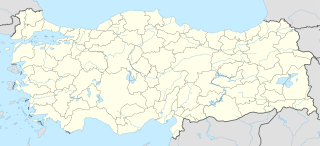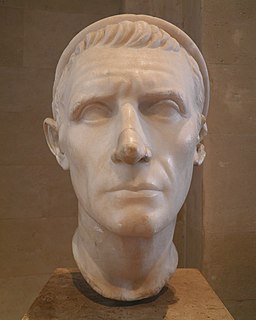Alexander (Greek : Ἀλέξανδρος; flourished 3rd century BC) was a Greek nobleman of Anatolia and served as a Seleucid official. [1]

Greek is an independent branch of the Indo-European family of languages, native to Greece, Cyprus and other parts of the Eastern Mediterranean and the Black Sea. It has the longest documented history of any living Indo-European language, spanning more than 3000 years of written records. Its writing system has been the Greek alphabet for the major part of its history; other systems, such as Linear B and the Cypriot syllabary, were used previously. The alphabet arose from the Phoenician script and was in turn the basis of the Latin, Cyrillic, Armenian, Coptic, Gothic, and many other writing systems.
The Greeks or Hellenes are an ethnic group native to Greece, Cyprus, southern Albania, Italy, Turkey, Egypt and, to a lesser extent, other countries surrounding the Mediterranean Sea. They also form a significant diaspora, with Greek communities established around the world.

Anatolia, also known as Asia Minor, Asian Turkey, the Anatolian peninsula, or the Anatolian plateau, is the westernmost protrusion of Asia, which makes up the majority of modern-day Turkey. The region is bounded by the Black Sea to the north, the Mediterranean Sea to the south, the Armenian Highlands to the east, and the Aegean Sea to the west. The Sea of Marmara forms a connection between the Black and Aegean Seas through the Bosphorus and Dardanelles straits and separates Anatolia from Thrace on the European mainland.
Alexander was the first son born to Achaeus [2] by an unnamed Greek mother. His father Achaeus was a wealthy nobleman who owned estates in Anatolia. His family had power in Anatolia with strong royal connections. [3] Alexander had three siblings, two sisters, Antiochis and Laodice I, and a brother Andromachus. [4] His father Achaeus was the second son of King Seleucus I Nicator and his first wife Apama I. [5] [6]
Achaeus was a Greek Macedonian nobleman and was the second son born to King and founder of the Seleucid Empire Seleucus I Nicator and Persian noblewoman Apama I. Achaeus was of Greek and Persian descent. He had three siblings: one brother the Seleucid King Antiochus I Soter and two sisters: Apama and Laodice. Achaeus is sometimes called Achaeus the Elder, to distinguish him from his grandson the Seleucid General, Achaeus.
The name Antiochis, in Greek Ἀντιoχίς is the female name of Antiochus. Antiochis in Greek antiquity may refer to:
Laodice I was a Greek noblewoman of Anatolia who was a close relative of the early Seleucid dynasty and was the first wife of the Seleucid Greek King Antiochus II Theos.
According to surviving inscriptions, Alexander was already active and held high positions under his paternal uncle Antiochus I Soter. [2] A surviving decree at Bargylia honoring a judge from Teos mentions Alexander as having been ‘left in charge’ by Antiochus I Soter, meaning that Alexander was some sort of governor in the Caria region. [7] The surviving decree at Bargylia dates from 270–261 BC. [1]

Antiochus I Soter, was a king of the Hellenic Seleucid Empire. He succeeded his father Seleucus I Nicator in 281 BC and reigned until his death on 2 June 261 BC.

Bargylia, was an ancient city on the coast of Caria in southwestern Anatolia between Iasos and Myndus. Bargylia's location corresponds to the modern Turkish town of Boğaziçi in Muğla Province.

Teos or Teo was an ancient Greek city on the coast of Ionia, on a peninsula between Chytrium and Myonnesus. It was founded by Minyans from Orchomenus, Ionians and Boeotians, but the date of its foundation is unknown. Teos was one of the twelve cities which formed the Ionian League. The city was situated on a low hilly isthmus. Its ruins are located to the south of the modern town Sığacık in the Seferihisar district of Izmir Province, Turkey.
During the reign of his paternal cousin and brother-in-law Antiochus II Theos, Alexander was a very powerful figure in Anatolia. [1] Between 261–244 BC in Magnesia ad Sipylum, he is noted in writing a letter about land allotments granted to soldiers and he was honored at Tralles. [1]

Antiochus II Theos was a Greek king of the Hellenistic Seleucid Empire who reigned from 261 to 246 BC. He succeeded his father Antiochus I Soter in the winter of 262–61 BC. He was the younger son of Antiochus I and princess Stratonice, the daughter of Demetrius Poliorcetes.

Magnesia ad Sipylum, was a city of Lydia, situated about 65 km northeast of Smyrna on the river Hermus at the foot of Mount Sipylus. The city should not be confused with its older neighbor, Magnesia on the Maeander, both founded by colonists from the Greek region of Magnesia.

Aydın, ancient Greek Tralles, is a city in and the seat of Aydın Province in Turkey's Aegean Region. The city is located at the heart of the lower valley of Büyük Menderes River at a commanding position for the region extending from the uplands of the valley down to the seacoast. Its population was 207,554 in 2014. Aydın city is located along a region which was famous for its fertility and productivity since ancient times. Figs remain the province's best-known crop, although other agricultural products are also grown intensively and the city has some light industry.
In the year 240 BC Alexander was still loyal to his nephew Seleucus II Callinicus, as he was the governor of Lydia, based at Sardis. [1] [8] In the civil war between Seleucus II Callinicus and his brother Antiochus Hierax, Alexander supported his second nephew, and held Sardis against attacks by Seleucus II. [2]

Seleucus II Callinicus Pogon, was a ruler of the Hellenistic Seleucid Empire, who reigned from 246 to 225 BC. Faced with multiple enemies on various fronts, and not always successful militarily, his reign was a time of great turmoil and fragmentation for the Seleucid empire, before its eventual restoration under his second son and eventual successor, Antiochus III.

Lydia was an Iron Age kingdom of western Asia Minor located generally east of ancient Ionia in the modern western Turkish provinces of Uşak, Manisa and inland İzmir. Its population spoke an Anatolian language known as Lydian. Its capital was Sardis.

Sardis or Sardes was an ancient city at the location of modern Sart(Sartmahmut before 19 October 2005), near the Salihli in Turkey's Manisa Province. Sardis was the capital of the ancient kingdom of Lydia, one of the important cities of the Persian Empire, the seat of a proconsul under the Roman Empire, and the metropolis of the province Lydia in later Roman and Byzantine times. As one of the seven churches of Asia, it was addressed by John, the author of the Book of Revelation in the New Testament, in terms which seem to imply that its church members did not finish what they started, that they were about image and not substance. Its importance was due first to its military strength, secondly to its situation on an important highway leading from the interior to the Aegean coast, and thirdly to its commanding the wide and fertile plain of the Hermus.
After the end of the civil war, nothing is known on Alexander. His namesake was his great-nephew Seleucus III Ceraunus, whose name was Alexander until he succeeded his father Seleucus II Callinicus as King in 225 BC.[ citation needed ]

Seleucus III Soter, called Seleucus Ceraunus, was a ruler of the Hellenistic Seleucid Kingdom, the eldest son of Seleucus II Callinicus and Laodice II.




